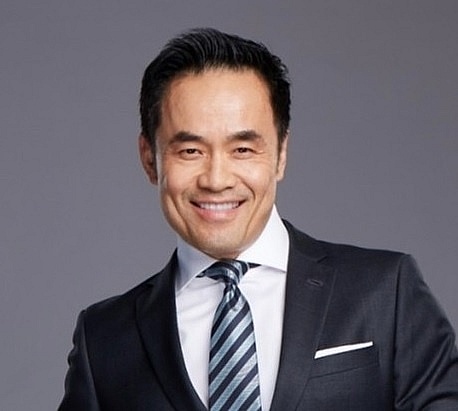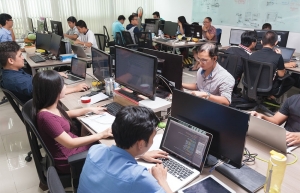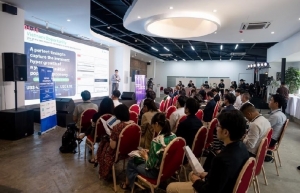Compelling business model essential for success
Amid the current financial landscape, how do you see the investment appetites of global investors evolving?
From the escalating interest rates that echo the world’s financial concerns to brewing geopolitical tensions, uncertainty seems to be the new norm.
 |
| Louis Nguyen, chairman and CEO of Saigon Asset Management |
This environment has led many investors to tread with caution. A conservative streak is becoming more apparent, with a pronounced shift towards liquidity. Increasingly, investors, whether individual or institutional, are preferring the relative safety of cash holdings over more volatile investments.
Vietnam, too, reflects this broader sentiment of caution. But for this Southeast Asian nation, the complexities run deeper. Beyond the external geopolitical and economic factors that influence global investment behaviours, Vietnam grapples with its own unique set of challenges.
Recent internal events and policy indecisions have contributed to an atmosphere of hesitation. Decision-making stalemates at various levels, be they governmental or corporate, have further muddied the waters for potential investors and business leaders.
What challenges do you believe startups face, especially during economic downturns?
The heart of the challenge remains unchanged: finding startups with either game-changing technology or those that possess a defensible high barrier to entry with a viable business model. Economic downturns only accentuate these and other challenges.
For tech startups navigating these challenges, they could look at successful models in developed nations and adapt them for the local market. Also, understanding the unique dynamics of local and regional markets is crucial. Startups should have a thorough understanding of the local and regional market and come up with a solution that can be addressed regionally.
Bear in mind that regional investors often align their strategies with trends set by major venture capital (VC) groups in dominant markets like the US and China.
When assessing investment opportunities, what stands out for you in Vietnam’s startup ecosystem is all about the team and their track record.
On the other hand, while the regional landscape is competitive, Vietnam’s robust macroeconomic indicators might give it an edge. As for valuations, the recent correction seems rational. The Vietnamese market did feel somewhat overvalued and still has some cooling to do.
Do you see any untapped potential or underserved areas within the Vietnamese startup market?
Certainly. While local VC funds typically focus on early-stage ventures and private equity (PE) firms target later stages, there is a significant funding void in the Series A++ to exit stage. Yet, it remains markedly underserved in the funding realm.
In addition, the complexities are further compounded for foreign VC and PE firms looking to tap into Vietnam’s promising market. While Vietnam presents a plethora of opportunities, it also offers unique challenges. The local business culture, regulatory environment, and market dynamics of Vietnam can be perplexing to those unfamiliar with its nuances. For many foreign investors, navigating these intricacies can pose unforeseen challenges, often demanding a steeper learning curve and a more flexible approach.
Furthermore, as the world progressively leans towards sustainable investing – motivated by environmental, social, and governance (ESG) considerations – Vietnam exhibits a certain level of reticence. Despite the increasing global momentum to weave sustainability into investment decisions, there seems to be a cautious approach in Vietnam’s investment community.
This hesitancy might be attributed to various factors, including a lack of clarity on ESG criteria or possibly the infancy of sustainable investment practices in the region.
In light of uncertainties plaguing venture capital funds, do you have any advice for Vietnamese entrepreneurs aiming to pull in investments?
Crafting a compelling business model or building a recession-proof business is essential. Fundraising timelines might elongate, so it’s wise to have a robust cash preservation strategy.
Furthermore, there are red flags for startups that might make them less attractive to investors. For instance, overconfidence can be detrimental. Other deterrents include denial of competition, inflated valuations, reluctance to accept standard terms like clawbacks, and presentation inaccuracies.
 | Vietnam's edtech startups gain attention from purpose-driven investors Vietnam's edtech market is continuing to receive an influx of fresh capital as home-grown edtech startups receive attention from purpose-driven investors. |
 | Funding freeze thaws tech startup ambitions Many technology startup projects are still struggling to survive as the funding winter is expected to continue for at least the next year. |
 | Japanese investors tap into startups Japanese investors are growingly interested in Vietnamese tech startups to boost footprints and tap into local demand. |
What the stars mean:
★ Poor ★ ★ Promising ★★★ Good ★★★★ Very good ★★★★★ Exceptional
Related Contents
Latest News
More News
- State corporations poised to drive 2026 growth (February 03, 2026 | 13:58)
- Why high-tech talent will define Vietnam’s growth (February 02, 2026 | 10:47)
- FMCG resilience amid varying storms (February 02, 2026 | 10:00)
- Customs reforms strengthen business confidence, support trade growth (February 01, 2026 | 08:20)
- Vietnam and US to launch sixth trade negotiation round (January 30, 2026 | 15:19)
- Digital publishing emerges as key growth driver in Vietnam (January 30, 2026 | 10:59)
- EVN signs key contract for Tri An hydropower expansion (January 30, 2026 | 10:57)
- Vietnam to lead trade growth in ASEAN (January 29, 2026 | 15:08)
- Carlsberg Vietnam delivers Lunar New Year support in central region (January 28, 2026 | 17:19)
- TikTok penalised $35,000 in Vietnam for consumer protection violations (January 28, 2026 | 17:15)

 Tag:
Tag:

















 Mobile Version
Mobile Version